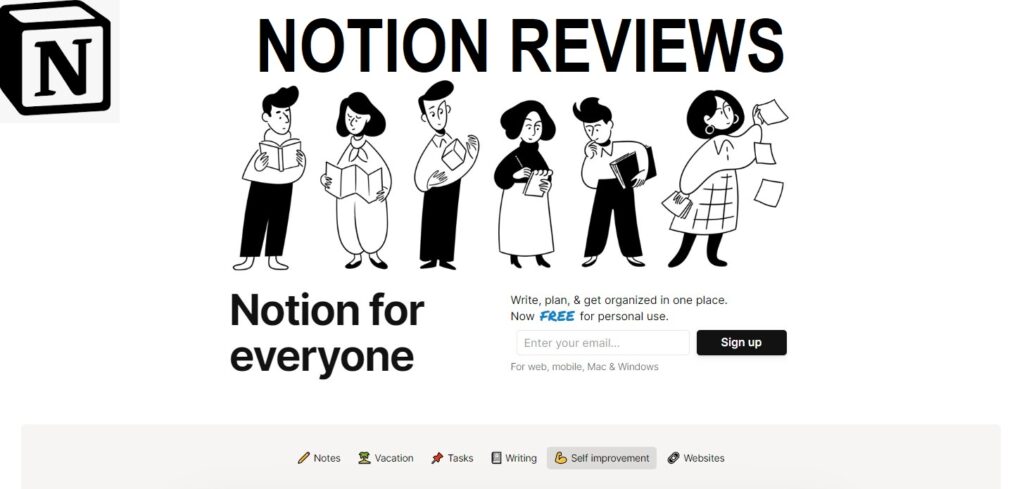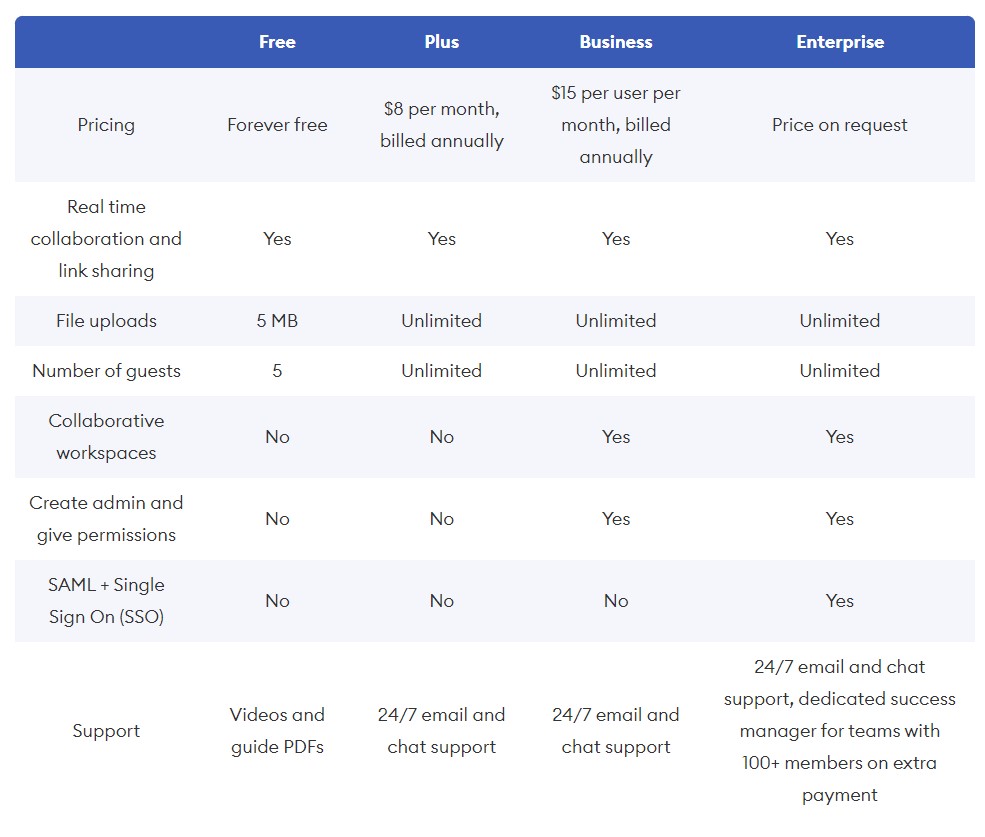What Is Web Hosting?
Web hosting, also referred to as website hosting or web hosting, involves the storage and maintenance of website files and applications by a web hosting provider on a server. This process enables customers’ websites to be accessible on the Internet. Web hosting necessitates the use of one or more physical or virtual servers to act as the web host, along with a domain name system (DNS) for name configurations and directing to the hosting service.
Typically, companies specializing in hosting, such as GoDaddy, Bluehost, or HostGator, lease website space to their customers. These web hosting providers possess the necessary technology and resources to ensure the secure and continuous operation of a website. However, some website owners may opt to host their websites on their own servers, though this requires significant technical skills and capabilities.
Before a hosting provider can offer domain names for sale, especially top-level domain names (TLDs), they must obtain accreditation from the Internet Corporation for Assigned Names and Numbers (ICANN). ICANN, a nonprofit organization, oversees the DNS, root servers, and central database of Internet Protocol (IP) addresses. Additionally, ICANN manages the overall supply of IP addresses.
How Does Web Hosting Work?
Imagine web hosting as the search for a home for your website. Everything that makes up your website—such as the domain name, HTML code, images, and text—requires a designated space to reside. Web hosting serves as that space by providing a location on a server.
In essence, a server acts like a computer linking users to your website. To draw a parallel, think of the server as a sizable condo or office building, while web hosting is akin to renting office space or purchasing a condo within that building.
Web Hosting vs. Domain Hosting
Before embarking on web hosting to find a home for your website, obtaining a domain name is a prerequisite. Although closely related, web hosting and domain hosting are distinct services. Web hosting involves linking your website to a server, while domain hosting is the process of acquiring a domain name or web address for your site.
In our earlier analogy, if web hosting is comparable to renting space in a building, then domain hosting is analogous to placing a nameplate outside your door with your name and address. The domain serves as the means through which people navigate to your address on the Internet.
While many service providers offer both domain hosting and web hosting for streamlined convenience, it’s worth considering whether separating these services aligns better with your needs. Nevertheless, securing a domain name through a domain registrar is a prerequisite before delving into web hosting considerations.
How To Choose the Best Web Hosting Service for You
When choosing the optimal web hosting service, we recommend taking into account a variety of factors, including price, storage capacity, bandwidth limits, customer support, server location selection, Security properties and availability of automatic backups. Another important consideration is scalability. Even with a hosting service to help with the migration process, migrating a website is still a complicated task. Does the hosting provider offer diverse options that can grow seamlessly with your website? Furthermore, evaluate the user-friendliness of your chosen web host.
Essential Web Hosting Features
We recommend seeking a web hosting provider that encompasses the following essential features, regardless of your specific website requirements:
- Reliability and Performance: Opt for a hosting provider with strong uptime, preferably at 99.9% or higher, to avoid site outages. Many hosts offer contractual guarantees, promising partial premium reimbursement for any downtime.
- Security: Ensure your web host incorporates DDoS protection, SSL certificates, and other security features to shield your site from malicious attacks.
- Customer Service: Choose a host with 24/7 customer support, enabling prompt assistance if issues arise. Explore available support options, including chat, phone, ticket, and email support, which are typical for web hosts.
- Storage and Bandwidth: Consider storage and unmetered bandwidth as crucial factors when selecting a web host. More storage allows for additional content storage, such as videos and images. Bandwidth affects your website’s loading speed and data transfer when visitors access your site. Seek a host that offers unlimited storage and bandwidth.
- Backups: Regular backups are vital for your website’s integrity. Ensure the chosen web host provides automatic backups. If the hosting provider doesn’t offer automatic backups, consider investing in a third-party backup service.
Ease of Use
Seek out a web hosting provider featuring an intuitive user interface and control panel. This will be a time-saving asset for future changes or updates to your website. A quality web host should provide one-click installations for widely-used content management systems (CMS) like WordPress or Drupal. Additionally, if coding is not your forte, look for a hosting service that offers a drag-and-drop website builder for ease of use.
Scalability
We remind you that it is important to consider scalability when choosing a web hosting service. How do you envision expanding your website in the future? Are the host’s services suitable for your growth? Does the server offer simple means to scale, perhaps through options such as VPS and dedicated hosting? A reliable web host should be equipped to manage the growth of your website. Likewise, if you anticipate a temporary slowdown, can you switch to a lower-tier plan?
Types of Web Hosting
Various types of web hosting are accessible, and although opting for the most economical choice may be tempting, it can potentially result in issues later on, depending on your requirements. Hence, it is crucial to consider not only the cost but also factors such as customer service, security, speed, and customization options.
Shared Hosting
Shared hosting is widely favored by small businesses and websites with minimal customization requirements or moderate traffic expectations. This hosting type allocates space for numerous websites—ranging from dozens to hundreds or even thousands—on a single server.
While the costs are generally affordable, it’s important to note that there might be service disruptions or reduced connection speeds. This is due to multiple clients and websites sharing the same server resources, including disk space, RAM, and central processing unit (CPU) power.
Virtual Private Server (VPS) Hosting
An advancement from shared hosting is VPS hosting. Similar to shared hosting, various websites share the same server, but each website’s files and content reside in its dedicated space on the server. While the cost is slightly higher than shared hosting, you get your own isolated section on the server, enhancing security. Moreover, VPS hosting is scalable to your requirements, allowing you to customize the server and install the necessary software.
VPS hosting comes in two options: managed and unmanaged. Opting for managed VPS hosting means the host takes care of all maintenance tasks and services to keep your website and server operational. Although this option is pricier, you won’t be responsible for maintenance.
On the other hand, choosing unmanaged VPS hosting requires you to configure and maintain the server, monitor security threats, perform software upgrades, and back up your data. This option is suitable for website developers, businesses with a dedicated IT department, and individuals with a background in technology.
WordPress Managed Hosting
According to our research, users currently widely use WordPress as a content management system, so many web hosting providers now offer hosting services specifically designed for WordPress. These services go beyond basic web hosting, including features like dedicated technical support and software updates designed for WordPress. While this type of hosting offers benefits like scalability, speed, and security, it comes at a price ranging from about $2 to $30 per month. However, it is important to note that there are fewer customization options as it is limited to WordPress features.
Cloud Hosting
Cloud hosting entails hosting your website on multiple servers to enhance performance and connection speed. While it comes at a higher cost compared to shared hosting, it adeptly mitigates connection or speed issues by efficiently managing surges in traffic. Cloud hosting also provides advantages like scalability, backup, and disaster recovery. Nevertheless, it’s important to bear in mind that these additional services come with associated costs, and the pricing models of cloud hosting providers can be intricate, and contingent on the customized plan.
Dedicated Hosting
Dedicated web hosting involves a website having exclusive use of an entire server, resulting in minimized security and connection issues. However, this level of service comes with a corresponding price.
Despite the costs, there are situations where the investment is justified. For example, if you anticipate a substantial increase in website traffic, potential service disruptions and slow connection speeds could harm your business. In such scenarios, the expense of a dedicated server becomes worthwhile as it ensures uninterrupted service and rapid connection speeds. Additionally, a dedicated server offers enhanced security, which proves valuable when handling sensitive information such as credit card details.
10 Best Web Hosting Services of 2024
1. DreamHost: Best For WordPress Beginners
Ranked first in the list of Best Web Hosting Services is Dreamhost. It quickly emerged as a leading web hosting provider. DreamHost combines reliability and affordability, offering feature-rich plans that include everything needed to set up a new website, including a domain name, SSL certificate, and one-click WordPress installation mouse. In addition to competitive prices, DreamHost also offers a user-friendly website builder and, especially, responsive support available for any hosting or website-related issues.
Starting at just $2.59 per month for the basic plan, DreamHost’s Shared Starter plan renews at $6.99 per month. This plan includes features like one website, unmetered bandwidth, 50 GB of storage, up to five subdomains, six MySQL databases, free domain privacy, and 24-hour support. /7 via ticket.
For the best value, the Shared Unlimited plan is available at $2.95 per month with a 36-month contract. After the initial promotional period, the price increases to $12.99 per month. This comprehensive package includes unlimited websites, domain emails, storage, and MySQL databases.
DreamHost has emerged as a strong choice for web hosting, meeting the needs of most businesses. Its standout feature lies in its exceptional support, making it especially suitable for WordPress beginners looking for expert help at their fingertips.
Features:
- Tailored control panel for personalized management.
- Recognized for excellence in customer support.
- Effortless installation with a 1-Click installer.
- Assured 100% uptime.
- Enhanced performance with SSDs.
- Complimentary SSL certificate.
- Free domain included.
- WordPress pre-installed for convenience.
2. IONOS: Best for Startups
Next, we would like to introduce you to IONOS – distinguished as a leading web hosting provider, offering a variety of hosting packages specifically designed to start, expand, and monitor your business website. Each plan includes a free domain name for the first year, a free SSL certificate, and around-the-clock support. Benefit from 99.99% reliable uptime, DDoS protection, scalable options, geographically redundant infrastructure, and zero hosting and site freedom limit.
For budget-conscious startups, IONOS offers an incredibly low first-year price of $1 per month. Then, the price will adjust to $10 per month after the first year. Even at $10 per month, its optimized CPU and MEM resources make it an attractive choice beyond the introductory period.
Navigating through plan options is simplified thanks to IONOS offering expert recommendations, and assisting with decisions like launching an online store or finding the optimal host for your WordPress site.
With an unmatched introductory price, IONOS is considered the ideal web hosting service for cash-strapped startups looking for a top-quality server with minimal initial investment.
Features:
- User-friendly control panel.
- Shared plans backed by a 30-day money-back guarantee.
- Extensive selection of plugins.
- Georedundant infrastructure for enhanced reliability.
- Complimentary SSL certificate.
- Reliable 99.95% uptime assurance.
- Free domain for the initial year.
- Daily backups for added data security.
3. Hostwinds: Best for Content-Heavy Sites
In our assessment, Hostwinds emerges as a distinctive web hosting provider, offering unlimited storage and bandwidth with every plan, positioning it as a top-tier option for content-rich websites. It provides added advantages, such as unlimited business emails, complimentary SSL certificates, a free dedicated IP address, hassle-free site migration, effortless WordPress auto-installation for swift setup, and responsive round-the-clock support. A noteworthy feature is Hostwinds’ provision of three distinct server locations (Dallas, Seattle, or Amsterdam), providing users with enhanced control.
Pricing initiates at $3.74 per month with a 36-month contract, $5.24 per month with a 12-month contract, or $6.74 per month with a monthly arrangement. While the plans are comprehensive and include unique offerings like a free dedicated IP address and the option to choose your server location, it’s essential to note that domain names are not incorporated.
Hostwinds is an excellent choice for businesses seeking expanded storage capacity without incurring excessive costs, particularly those experiencing rapid growth beyond their current hosting provider. Furthermore, it proves advantageous for new businesses establishing content-heavy websites, such as portfolio websites.
Features:
- Storage and Bandwidth: Hostwinds stands out with unlimited bandwidth and disk space even in its Basic plan, allowing seamless data transfer.
- Extras: Hostwinds plans include free SSL certificates, a complimentary domain, and a dedicated IP, with promotional rates applying to the initial billing cycle.
- User-Friendly Interface: Hostwinds provides an intuitive control panel for easy account management, featuring one-click installs, a robust website builder, and email creation tools.
- Dashboard/cPanel: The cPanel offers comprehensive website management, including file and email account management, with options for backups and spam prevention.
- Security Measures: Hostwinds prioritizes security with SSL protocols, free AutoSSL certificates, and nightly backups for data restoration.
- Weebly Website Builder: Shared and business hosting plans offer Weebly, an easy-to-use drag-and-drop website builder, suitable for small businesses, allowing customization with various themes or the use of other builders like WordPress.
4. Bluehost: Best for New Websites
Coming in at number 4 on the list is Bluehost – one of the most popular web hosting platforms for good reasons. Offering a wide range of features at a competitive price, it caters perfectly to individuals starting their web hosting journey. The basic plan offers 10GB of storage, unlimited bandwidth, a free domain for the first year, and support for up to 25 subdomains. Choosing the Plus plan doubles your storage, grants $200 in Google Ads/Bing credits, and allows unlimited use of primary, parked, and subdomains.
While Bluehost plans to start at $11.99 per month, the Basic plan is available for as low as $2.95 per month for the first term. The Choice Plus plan costs $21.99 per month or $5.45 per month for an initial term. The Online Store plan costs $9.95 per month for the first term and renews at $26.99 per month. The Pro plan, Bluehost’s most premium plan, costs $28.99 per month, with the first term costing $13.95 per month.
Bluehost has emerged as an optimal choice for website owners looking for reliable and cost-effective hosting, equipped with a variety of features and tools to effectively manage their websites.
Features:
- Automated WordPress Installation: Upon selecting this plan, your control panel will automatically install the latest WordPress version on your account, simplifying the setup process.
- WordPress Updates: Hosting your WordPress site with Bluehost ensures automatic updates, guaranteeing that your website is consistently running the most recent version with enhanced security features.
- Complimentary SSL Certificate: All Bluehost plans include a free SSL certificate for your website, ensuring a secure online environment for both you and your visitors.
- Free Domain Name (1 Year): This plan offers a complimentary domain name for the initial year, with subsequent renewals necessary.
- Secure Login Credentials: Upon creating your WordPress hosting account, you have the option to customize your login credentials. Choose your own passcode or have Bluehost configure a generic one for added security.
5. HostGator: Best Perks
Next, we would like to introduce to you HostGator – a good web hosting service that offers outstanding value, reliable performance, and a rich feature set ideal for small and medium businesses in many industries. different industries. Hosting options include shared, WordPress, website building, dedicated virtual private server (VPS), and reseller hosting. This service offers unmetered disk capacity, unmetered bandwidth, and a 99% uptime guarantee. Additionally, users benefit from 24/7 support and a 30-day money-back guarantee.
Starting at $2.75 per month for an initial term, each plan includes one-click WordPress installation, unlimited bandwidth, free SSL certificate, free domain, and site transfer WordPress/cPanel is free. Choosing a mid-range shared hosting plan allows access to unlimited websites at $3.50 per month for the first term.
HostGator’s shared hosting plans serve individuals and small businesses looking for an affordable solution with flexible hosting options well.
Features:
- Ad Credits: HostGator plans include $15 Google and $100 Bing ad credits, essential for brand and site visibility.
- Unmetered Bandwidth: HostGator ensures efficient site traffic handling with unmetered bandwidth, removing limitations.
- Easy App Integration: One-click installs on HostGator simplify app integration, particularly with WordPress for seamless hosting.
- Site Security & SSL: Each HostGator domain comes with a free SSL certificate, guaranteeing visitor safety and site protection.
- Dedicated and Shared Servers: Tailored hosting options: dedicated for large enterprises, sharing bandwidth, and cost-cutting for smaller businesses.
- VPS (Virtual Private Server): HostGator maintains site privacy on shared servers through Virtual Private Servers, digitally dividing server space.
- Unlimited Storage: HostGator’s hosting plans provide unlimited storage, accommodating diverse hosting needs.
- Domain Registration: HostGator serves as a one-stop solution for buying, transferring, and registering domain names.
6. InMotion Hosting: Best for Reliability
InMotion Hosting, a prominent web hosting provider, distinguishes itself with its exceptionally low pricing, reliability, and robust security features. Offering an extensive 90-day money-back guarantee, automatic backups, DDoS protection, and malware protection, it prioritizes safeguarding your site and securing sensitive information, including payment details and user data.
Plans commence at $2.49 per month with a 36-month commitment, $2.99 with a 24-month commitment, $3.49 with a 12-month commitment, or $19.99 month-to-month (exclusive to the Pro plan). These plans include 100GB of solid-state drive (SSD) storage, unlimited bandwidth, a complimentary SSL certificate, up to 10 business email addresses, and enhanced security features.
InMotion Hosting proves ideal for businesses emphasizing reliability, peace of mind, and cost-effectiveness, highlighted by its substantial money-back guarantee and renowned high uptimes.
Features:
- 24/7/365 WP Hosting Support: Professional support is available round the clock, ensuring assistance at any hour.
- Safety and Security: Enjoy free SSL and premium malware & hack protection for enhanced safety measures.
- Free Domain: Sign up for a hosting plan and receive a complimentary domain if you don’t already have one.
- Free Drag-And-Drop Builder: Utilize the free drag-and-drop builder to craft custom layouts within WordPress.
- WordPress Website Migration: Access free migration tools to effortlessly move your WordPress site from another hosting company.
- WordPress Optimized Stack: Benefit from a WordPress optimized stack, featuring WP-CLI, Imagemagick, PHP 7, PHP 8, managed updates, and more.
- Money-Back Guarantee: A 90-day money-back guarantee ensures customer satisfaction.
7. MochaHost: Best for Lifetime SSL Certificates
Coming in at number 7 on the list is Mochahost – a great choice for businesses of all types, offering highly competitive prices on feature-rich plans. Starting at just $2.29 per month, it offers out-of-the-box features like unlimited storage and bandwidth, making it suitable for content-heavy and high-traffic websites . This plan includes a money-back guarantee, a website builder, and extras like a free domain name, SSL certificate, and unlimited business emails with Webmail.
Notably, MochaHost delivers exceptional value with the lowest prices in the industry and high-value features. Plans include highly rated unlimited lifetime SSL certificates, 24/7 technical support, and a free site migration service for users changing web hosts. Mocha’s lightning-fast guarantee ensures faster page loads than any other cloud hosting service, supplemented by a 30-day money-back guarantee.
With three main hosting plans ranging from $2.29 to $3.81 per month with long-term contracts, MochaHost offers unlimited disk space, making it cost-effective for sites with a lot of content and gives unlimited traffic to pages with a significant number of visitors.
With impressive features at an affordable price, MochaHost offers great value for most businesses. Its unlimited storage and bandwidth make it especially suitable for content-heavy websites, including portfolios, e-commerce platforms with extensive product catalogs, and web pages. website has a high number of visitors.
Features:
- Advanced Data Centers: MochaHost’s data centers feature advanced elements like diesel generators, backup tape libraries, and 24/7 real-time server monitoring for heightened safety and security.
- Free Tool Library: Users access over 450 free tools and a one-click installer, with additional resources and benefits available through upgrading.
- Automated Malware and Spam Monitoring: MochaHost provides automated anti-spam software for enhanced security, actively monitoring and alerting users to potential issues.
- MochaHost Freebies: Hosting plans include a generous Google Ads credit, free migration assistance, and a lifetime discount guarantee for those opting for the three-year plan.
- Unlimited Free SSL Certificates: MochaHost offers the unusual benefit of unlimited free SSL certificates, contributing to improved Google rankings, heightened site security, and increased visitor trust.
8. GoDaddy: Best for Easy Site Setup
GoDaddy stands out as the preferred web hosting service for businesses seeking a hassle-free setup with modest storage needs. Particularly advantageous for WordPress websites, it offers convenient one-click installation, daily backups, and includes a free SSL certificate for enhanced site security. The inclusion of DDoS protection adds an extra layer of defense against malicious attacks.
Pricing initiates at $5.99 per month with a three-year commitment, subsequently renewing at $9.99 per month. The Web Hosting Deluxe plan, priced at $7.99 per month for a three-year term, renews at $13.99 per month. For high-traffic websites, the Web Hosting Ultimate plan, at $12.99 per month with a three-year contract, renews at $17.99 per month. Additionally, there’s a Web Hosting Maximum plan catering to up to 50 sites, priced at $17.99 per month for the initial three years, followed by a renewal rate of $24.99 per month.
GoDaddy is especially suitable for small businesses aiming for seamless WordPress website setup with one-click installation, coupled with the advantage of locking in favorable pricing that remains stable upon renewal.
9. InterServer: Best for Website Security
Earning ninth place on our rankings is InterServer, which offers an affordable and full-featured web hosting solution. The platform offers a wide range of valuable tools and features meticulously designed to protect and maintain the security of your website. Integrated into the plans is InterShield Security, a purpose-built protection against web attacks. This is complemented by an internal malware database, machine learning firewall, and automated virus scanner, all of which work in tandem to ensure consistently optimal performance of your website. Friend. This diversity of protections makes InterServer an exceptional choice for businesses that handle sensitive information, including complex customer contact information.
At a modest cost of just $2.50 per month and with no contractual obligations, InterServer’s dedicated web hosting plans offer unlimited storage and bandwidth. Highlighting its security features is Inter-Insurance, which quickly resolves any consequences of security breaches, alongside powerful InterShield Security. In addition to a formidable security infrastructure, this plan includes 24/7 managed support, free site migration, unlimited storage, unlimited business email, and a 30 hour money-back guarantee day.
We rate InterServer as the leading web hosting service for businesses on a budget that prioritizes website security, especially those that manage sensitive information and process online payments. This includes many entities such as online stores, medical clinics or financial service providers, making it a flexible and trustworthy choice in the digital landscape.
Features:
- Unlimited data transfer.
- Unlimited storage capacity.
- Weekly backup services.
- Unlimited FTP account allocations.
- Cloud applications support.
- SSD caching servers.
- RAID-10 storage configuration.
- Speed optimization features.
10. TMDHosting: Best for Fast-Growing Businesses
TMDHosting provides a diverse range of plan options tailored to accommodate the growth of your business, including web, cloud, WordPress, VPS, and reseller hosting. Some plans even feature dedicated servers. Typically, smaller companies initiate their journey with web or cloud hosting before progressing to VPS (virtual private server) or dedicated servers.
Access support around the clock via phone or email, with response times as swift as 15 minutes. An extensive knowledge base is available for self-help, although it hasn’t seen updates since 2018.
Starting at $10.99 per month (on a monthly payment basis), plans often come with regular discounts, making them available for as low as $2.99 per month with a lengthier contract. Opting for a 12-month contract reduces the cost to $2.99 per month, while a month-to-month arrangement is priced at $10.99 per month.
All plans feature unlimited SSD storage and bandwidth, along with cost-saving bonuses such as a complimentary domain name, free account setup, and a free SSL certificate. Additionally, plans include 24/7 support and a 60-day money-back guarantee, providing a risk-free trial period.
Businesses seeking high-quality and cost-effective web hosting plans that can scale with their growth find an ideal solution in TMDHosting. With comprehensive features encompassing everything necessary for website development and launch, including e-commerce sites, it caters perfectly to those in the early stages of building a website.
Features:
- Shared Web Hosting: Economical but shares server resources, potential for downtime with high traffic.
- VPS Web Hosting: Offers dedicated server OS instance, more resources than shared hosting, slightly costlier.
- Dedicated Web Hosting: Exclusive server usage, ideal for high traffic, higher cost.
- Cloud Web Hosting: Spreads resources across servers, TMDHosting offers three plans.
- WordPress Web Hosting: TMDHosting supports WordPress, powering over 30% of the internet.
- Reseller Web Hosting: TMDHosting’s reseller packages for those entering the web hosting business.
- Building a Web Hosting Site: TMDHosting offers shared plans, and setup time varies.
- E-Commerce and Security: Compatible with e-commerce tools, additional security features are available.
- Rock-Solid Uptime: TMDHosting emphasizes reliable website uptime.
- Improved Web Host: TMDHosting offers rich features and strong customer support, with A2 slightly edging for WordPress hosting.
Web Hosting Cost
According to the data we collected, web hosting costs can vary from a few dollars to hundreds of dollars per month, highlighting the importance of staying within your budget. It’s important to factor in renewal costs as some providers may increase prices significantly after the initial term. Please consider your actual needs as some plans may provide features that are not necessary for your website. For example, lower-cost plans may exclude one domain and often only support one website, while more expensive options may include multiple domains, increased storage, bandwidth, and additional features. Choose the plan that offers the best value for your specific requirements.
Average Cost By Hosting Type
The cost of web hosting services varies widely across different types. Within each category, pricing can differ based on the level of customer service and the duration of the service plan. Here’s a general price breakdown:
- Shared web hosting: Costs range up to $15 per month.
- VPS web hosting: Monthly pricing falls between $18 and $85.
- WordPress managed hosting: Typically priced from $2 to $30 per month.
- Cloud hosting: Monthly rates vary from $5 to $50.
- Dedicated server hosting: Monthly costs range from $80 to several hundred dollars.
Website Hosting Cost Factors
The cost of website hosting is influenced by various factors, including:
- Storage: The allocated amount of data storage in your hosting plan.
- Bandwidth: The capacity to handle website traffic without slowdowns.
- Number of websites: The ability to host multiple websites under one account, depending on the plan.
- IP addresses: Additional costs may apply if you require a static IP address with your hosting plan.
- SSL certificate: This security feature protects your website from hackers. While some plans include a free SSL certificate, others may require a separate purchase.
- Customer service: Levels of customer support vary, ranging from 24/7 availability to limited support.
- Customization options: Hosting plans with customization and add-on features, such as databases or web servers, generally come at a higher cost.
Fees & Add-Ons
Your chosen web hosting provider might impose extra charges, such as setup fees (commonly waived with upfront payment or contract signing), fees for domain registration, or monthly support fees. Furthermore, there could be supplementary services available for purchase, like SEO optimization or additional security features to enhance your website. It’s crucial to carefully review the details in your contract and have a clear understanding of what is encompassed in your hosting plan before committing.
Do I Need A Web Host?
In today’s digital era, having a website is crucial for both personal and business purposes. You have the option to construct and host your site independently or opt for an all-in-one website builder that incorporates hosting. Nevertheless, if you desire greater control over your site and access to additional features, choosing a separate web hosting service could be the preferable option.
- Shopify: starting at $29 per month.
- Wix: starting at $16 per month.
- Squarespace: starting at $16 per month.
- Weebly: offers a free plan.
- GoDaddy: starting at $9.99 per month.
Low-Quality Web Hosting Affects Customer Loyalty
Optimal web hosting is indispensable for businesses, it directly affects customer experience and loyalty. Our survey of 2,000 participants vividly demonstrated the significant impact web hosting has on customer loyalty, providing statistics that reveal diverse responses from website visitors for below-average website performance.
As revealed in our survey, the average website visitor expressed a willingness to endure website load times of up to eight seconds. In contrast, nearly a third of respondents revealed a tighter threshold, drastically reducing the acceptable range to just three to six seconds. This highlights the critical importance of every fleeting second to website speed, a key element of website performance that largely depends on the quality of web hosting.
The frustration caused by slow or unresponsive websites is common among users, with only 2% saying they don’t feel frustrated with a slow website. Conversely, a staggering 97% say an unresponsive website is a source of frustration. While diverse factors contribute to a website’s speed and responsiveness, the quality of its web hosting emerges as a key aspect, one that businesses have the ability to change. change quickly.
A worrying statistic reveals that 43% of website users will quickly switch to a competitor if a business’s website appears slow or unresponsive. Not only does this risk increasing customer attrition rates, but it also risks wasting marketing budgets intended to drive traffic to the website.
Furthermore, 66% of users will avoid visiting websites that lack “HTTPS” security. While web design is certainly important, focusing on securing a website using the HTTPS protocol is still the most important thing. This statistic highlights the importance of building trust with website visitors through website security, a process that web hosting providers streamline through the provision of certificates. SSL only, usually provided for free.
Beyond Hosting: Other Website Setup Considerations
In addition to hosting, there are several other considerations when establishing your website. These encompass website builders, domain registration, email hosting, and e-commerce functionality.
Website Builder:
Website builders are tools or programs enabling website creation without coding. They furnish diverse drag-and-drop templates, often including hosting within the package, eliminating the need for a separate plan purchase.
Domain Registration:
Your domain name is the URL or web address for accessing your site. While many web hosting companies allow domain registration during hosting sign-up, some may charge an additional fee. A domain name is crucial for businesses, to enhance their professional online presence.
Email Hosting:
A dedicated email address is vital for building customer trust. Email hosting can be purchased from your web host or obtained through separate services like Google Workspace (formerly G Suite). Some web hosts include email hosting for free in their plans.
E-commerce Functionality:
For those planning to sell products or services online, selecting a hosting plan with e-commerce functionality is essential. Hosts typically provide e-commerce tools such as payment gateways, shopping carts, and secure checkout pages to facilitate a seamless start.
2024 Web Hosting Trends
As the internet undergoes rapid growth and development, the web hosting industry is evolving to meet heightened demands and rising expectations. These adaptations are evident in the prominent web hosting trends of 2024 as we enter the new year.
Fewer On-site Data Centers
Just like other industries, cloud hosting is emerging as a top consumer choice in the web hosting space. Businesses are moving away from on-premises dedicated servers, instead opting for operations hosted on third-party cloud servers.
Cloud-based servers offer many benefits, including enhanced scalability, greater flexibility, reduced costs, the ability to create backups, improved security measures, maintenance routine, and advanced software capabilities. Cloud computing is a long-term trend and we predict more and more entities will transition their operations to the cloud by 2024.
Multicloud Hosting
Multi-cloud hosting entails dispersing a website’s computing tasks among two or more distinct cloud computing platforms. Essentially, specific website functions are overseen by one provider, while others are managed by a different provider.
As per our research, the adoption of multi-cloud hosting has risen in recent years. This strategy enables companies to steer clear of reliance on a sole provider for all their needs, providing the flexibility to capitalize on the unique benefits and strengths offered by each server. We anticipate continued growth in the popularity of multi-cloud hosting in 2023 as companies aim to maintain competitiveness in the virtual landscape.
Frequently Asked Questions (FAQs)
Can I host my own website?
While it’s possible to host your own website, for the majority, this isn’t the most practical choice. It tends to be more expensive and time-consuming than utilizing a web hosting company since you would require your own servers, software, and the expertise to maintain them.
What is the best web hosting company?
If you’re in need of a web hosting service to support and elevate your business website, IONOS is the ideal solution. All their plans come with a complimentary one-year domain name registration, a free SSL certificate, and 24/7 customer service to address any unexpected issues.
HostGator secures a spot on our list of top web hosting services due to its excellent value for money, reliable performance, and extensive features tailored specifically for small- and medium-sized businesses (SMBs). It offers unlimited disk space, and bandwidth, and boasts a 99% uptime guarantee.
Bluehost distinguishes itself as one of the most popular web hosting solutions, and for good reason. It provides users with an impressive array of features at budget-friendly prices, making it an excellent choice for newcomers seeking reliable web hosting.
What is bandwidth in web hosting?
To guarantee efficiency and dependability for your website, it’s essential to choose a web hosting plan with sufficient bandwidth. Bandwidth is the measure of data that can be transmitted between your site and its visitors, usually expressed in megabytes or gigabytes per second. The higher the bandwidth, the more visitors your page can accommodate without experiencing lagging speeds. Many hosts provide various levels of bandwidth, so be sure to select one that meets all the requirements of your website!
What is web hosting and why do I need it?
Web hosting is a service that enables individuals to essentially lease space on the internet, and websites require web hosting to be accessible online. Certain content management systems (CMS), like Squarespace and Wix, incorporate web hosting as part of their monthly fee. However, if you’re constructing a site on WordPress, you’ll need to acquire web hosting from a web hosting provider such as IONOS or HostGator.
What are the different types of web hosting services?
Various web hosting services are available, with shared, VPS (virtual private server), and dedicated hosting being the most common. Shared hosting is the most popular and budget-friendly option. However, VPS and dedicated hosting offer heightened site security and improved website performance, making them preferred choices for large and well-established websites.
What is the cheapest way to host a website?
Some web hosts provide free hosting and domain names, but using them for business is not advisable. This is because your website will have the web host’s domain after yours (e.g., mycoolsite.webhostname.com). Shared hosting stands out as the most economical option, and we’ve compiled a list of the best affordable web hosting services for your consideration.
What is the difference between shared and VPS hosting?
Shared hosting is recognized as the most economical type of web hosting, with multiple websites sharing the same server to reduce costs through resource sharing. VPS hosting provides heightened security, hosting each website on a virtual private server with dedicated resources. This setup allows for increased control over the server, making it ideal for larger and well-established websites. However, it’s essential to acknowledge that VPS hosting comes with a higher price tag compared to shared hosting.
Why is website hosting so expensive?
Website hosting can incur high costs due to the competitiveness of the market. Since most web hosts provide similar features and resources, distinguishing oneself is often achieved by offering additional features, usually at an extra cost. Additionally, web hosts bear expenses for the servers and infrastructure powering their websites, along with the provision of 24/7 customer support.
How do I choose the best web hosting services?
When selecting the optimal web hosting services for your business, various factors must be taken into account. Crucial considerations include your website’s size, traffic, and goals. It’s also essential to determine the type of hosting required, be it shared, VPS, or dedicated hosting. Additionally, factors such as included extras (e.g., a domain name or business email) and support through your preferred contact method, such as live chat, phone, or email, should play a role in shaping your decision.
How do I transfer my site from one host to another?
If you intend to move your website from one host to another, the process is generally uncomplicated, although it may vary depending on your current web hosting provider. Typically, you’ll need to create a backup of your website, download it from your current host, and then upload it to the new hosting provider. Additionally, it’s important to update your domain name record to point to the new server. Your web hosting provider may offer assistance or guidance throughout this process.












